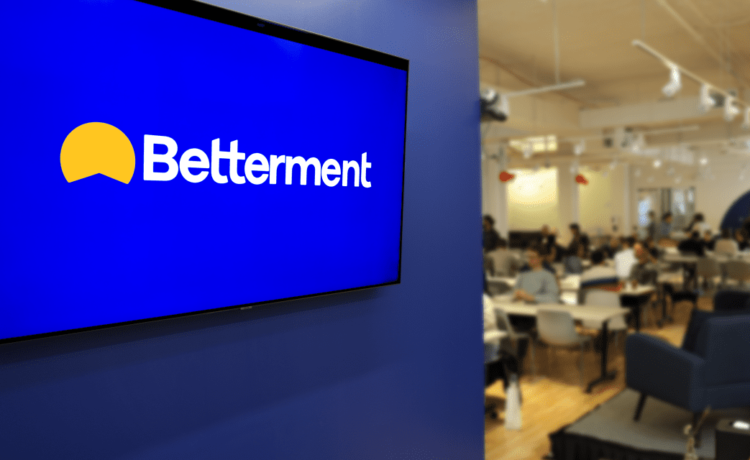Pioneering robo-advisor Betterment is embracing mutual funds in a bid to broaden the appeal of its platform that serves financial advisors.
For the first time, Betterment is making mutual funds available in its custom portfolio construction tools for advisors, adding thousands of funds from asset managers including Vanguard, Pimco,
and Fidelity. Advisors who hold client assets at Betterment can now combine mutual funds and exchange-traded funds in their portfolios.
The platform changes, unveiled Thursday, may prompt advisors who already hold some client assets at Betterment to move more to the company’s custody platform. They could also help Betterment win over other financial advisors as customers. Serving advisors has become an important part of the company’s growth strategy.
Tom Moore, head of Betterment for Advisors, says the company’s technology helps advisors to better manage client portfolios, including legacy assets. “We’ve added automation to help them do that, and to increase flexibility so that they can incorporate asset classes and strategies that may not be in ETFs today,” Moore says.
Moore says adding mutual funds has been among the top requests from Betterment’s advisor customers. “Advisors have clients who have held mutual funds for decades and they have big outsized gains,” he says.
Advertisement – Scroll to Continue
Although ETFs have been growing rapidly, a substantial amount of money remains in mutual funds, which have been around for 100 years. At the end of 2022, U.S. mutual funds had approximately $22 trillion in total net assets, the majority of which were in long-term mutual funds, according to the Investment Company Institute, a fund industry trade group. Equity funds and money-market funds made up 51% and 22% of U.S. mutual fund net assets, respectively. Approximately 115 million individual investors owned mutual funds, according to ICI.
Derek Tharp, founder of wealth management firm Conscious Capital, welcomed the addition of mutual funds to Betterment’s platform. “I have enjoyed the ease of use and powerful capabilities of Betterment for Advisors since I started working with them, but I appreciate even more that the team continues to enhance the offerings and improve the advisor experience,” he said.
In 2010 Betterment began operating one of the first robo-advisors, offering individual investors access to professionally managed portfolios at a fraction of the cost of traditional wealth management firms. It has since expanded into retirement plans and holding client assets for registered investment advisors.
RIA custody is dominated by incumbents
Advertisement – Scroll to Continue
and Fidelity, which control approximately three-quarters of the market, based on assets, according to research firm Cerulli Associates. Advisors don’t frequently change custodians, because the necessary paperwork is tedious and can inconvenience clients.
Nonetheless, Betterment sees an opportunity to win over advisors. The company is targeting RIAs with $250 million or fewer assets under management, a group that Betterment thinks is underserved by the big firms. “We want to own that part of the market,” Moore says.
Plenty of firms fall into that category. Seventy-three percent of RIAs manage less than $250 million, according to a 2023 Cerulli report.
Meanwhile, a significant fraction—about one-quarter—of all RIAs want to add another custodian, according to Cerulli.
Betterment doesn’t how many RIA assets it has, but Moore says Betterment had “record” flows into the RIA custody business last year. The company has more than $45 billion in assets under management.
Advertisement – Scroll to Continue
Moore says Betterment plans more updates and additions to its RIA platform, building on enhancements the company made over the previous two years. For instance, Betterment created a suite of tax-efficient tools to give advisors granular control over how client assets are managed, transferred, and sold. The company also updated its digital client onboarding capabilities and added a smart transitions feature, which is a tool designed to help advisors unwind legacy portfolio positions in a tax-efficient manner. An advisor can bring in legacy holdings, set a capital gains budget, and Betterment’s software will automatically sell legacy positions up to that budget, Moore says. “Like all our other programs, you basically just flip a switch, and it runs in the background,” he says. “It can help advisors decrease clients’ consolidation risk and get them a portfolio more aligned with their risk tolerance.”
Write to Andrew Welsch at [email protected]





